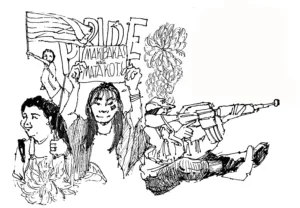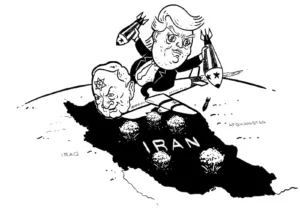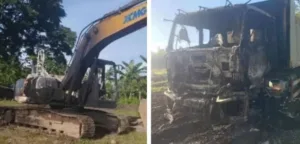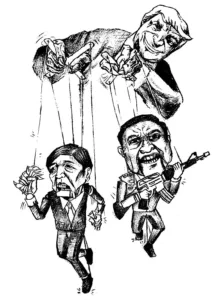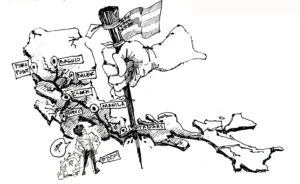By Prof. JOSE MARIA SISON
NDFP Chief Political Consultant
What most Filipino children suffer
At least 90 per cent of Filipino children suffer gross human rights violations under the semicolonial and semifeudal ruling system of the comprador big bourgeoisie and landlord class. They are victimized by the same foreign and feudal oppression and exploitation that torment their worker and peasant parents.
They live in appalling conditions of poverty and gross deprivation. They are malnourished and are prone to illness. They have extremely limited or no access to education, health care, medicine and proper housing. The overwhelming majority of them do not go beyond grade 4 and generally retrogress into illiteracy and innumeracy. Long before they reach the age of 15, they engage in hard labor to help their parents in eking out the subsistence of the family. The overwhelming majority of children live in the countryside under feudal and semifeudal conditions and they take part (often as unpaid labor) in agricultural production, some primary processing of the products and handicrafts.
Under the system of export-oriented semi-manufacturing, children are harnessed as cheap wage labor to do piece work either in their own homes, in plantations or in makeshift sweatshops in urban slums and village communities. They are made to work for long hours, at times extending beyond 12 hours, at subhuman wages. A considerable number of children take to the streets to engage in petty peddling and other odd jobs in order to augment the inadequate incomes of their parents or make up for their parents' lack of employment.
Street children are exposed to extremely degrading conditions. Some of them are drawn to petty crimes, prohibited drug use and prostitution. They experience daily extortion and bullying from the police and are vulnerable to sexual molestation. They are often rounded up and dumped into crowded jails where they are mixed with hardened criminals. Here some of them are recruited as runners between the corrupt police officers and crime gangs and generally they are further abused by their hardened criminal cellmates.
The worst cases involve the murder and trafficking of children. In a southern city, street children are murdered by the police whenever the local authorities want to show off that they are suppressing street crimes, drug trafficking and burglaries in wealthy subdivisions. There is also the trafficking of children for illegal adoption, for making them sex slaves or sometimes for the sale of their internal organs abroad.
Not only the children of workers and peasants are vulnerable to human rights violations. Children of low middle class parents who go abroad in large numbers and take up menial jobs are left behind and also become susceptible to the risks of being without direct parental attention and motherly care. In these cases, the violations of the rights of the child are often veiled by the illusion that the remittances of their parents take care of everything.
The children of the Bangsa Moro and other national minorities suffer not only the class exploitation and oppression of the workers and peasants. They also suffer national discrimination in general and specific terms. The Manila-based authorities know well how to deliver the rich natural resources and cheap labor in the areas of the national minorities to foreign plantation and mining corporations and to local exploiters. But they allot extremely low public funds for the education, proper nutrition and health care of children and nursing mothers. There are no resources available for promoting intercultural understanding to combat discrimination at all levels.
Filipino children of the toiling masses in any ethno-linguistic community in the Philippines are usually made invisible or of less concern by the powerful and wealthy in the current social system. When the sight of them cannot be denied, because genuine advocates of their rights call attention to them, they are often regarded as merely the objects of pity and not as conscious and active actors in gaining respect for and fulfilling their rights. There is an ever urgent need to arouse, organize and mobilize the children to fight for their own rights and interests.



